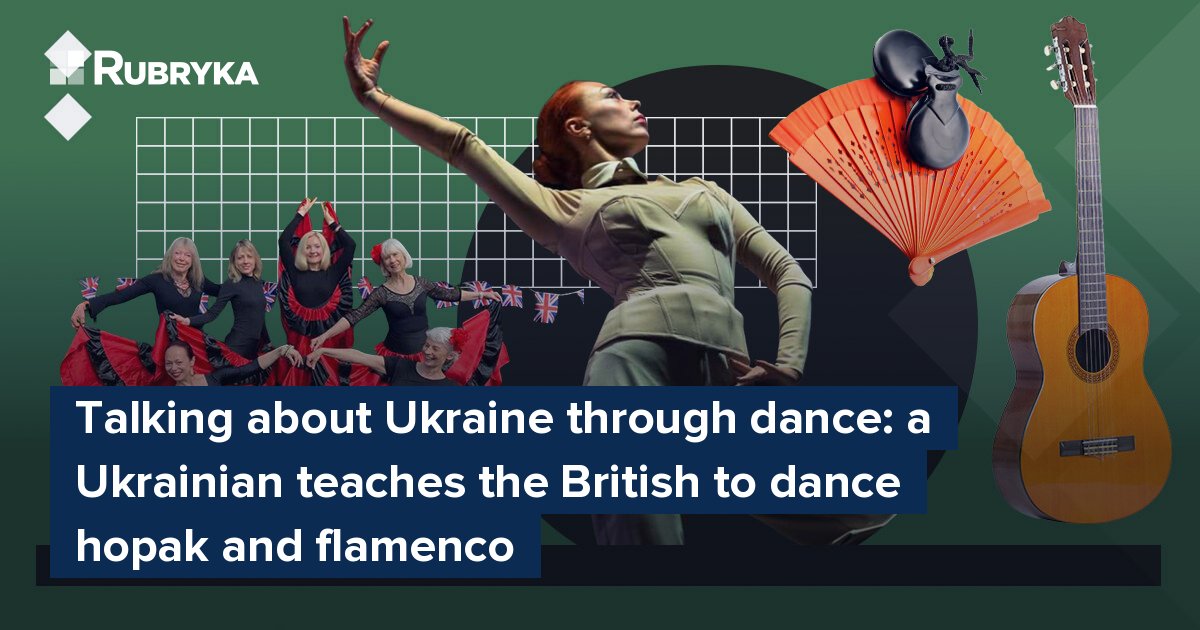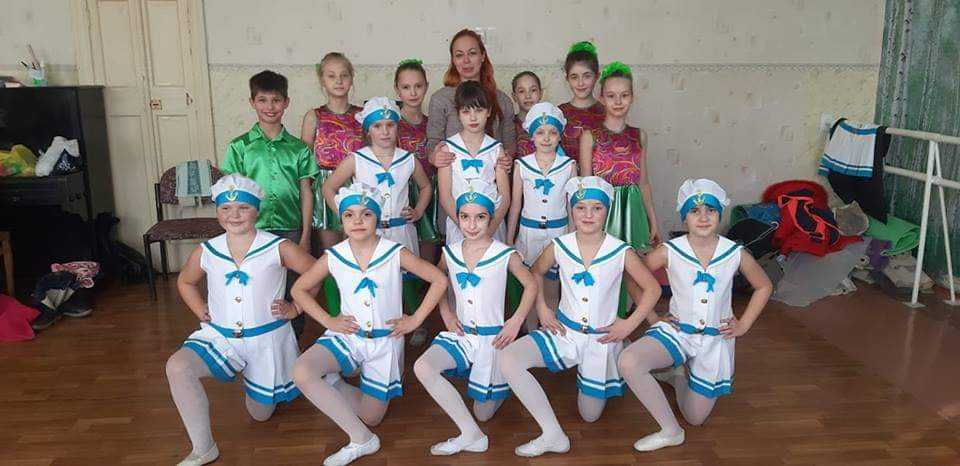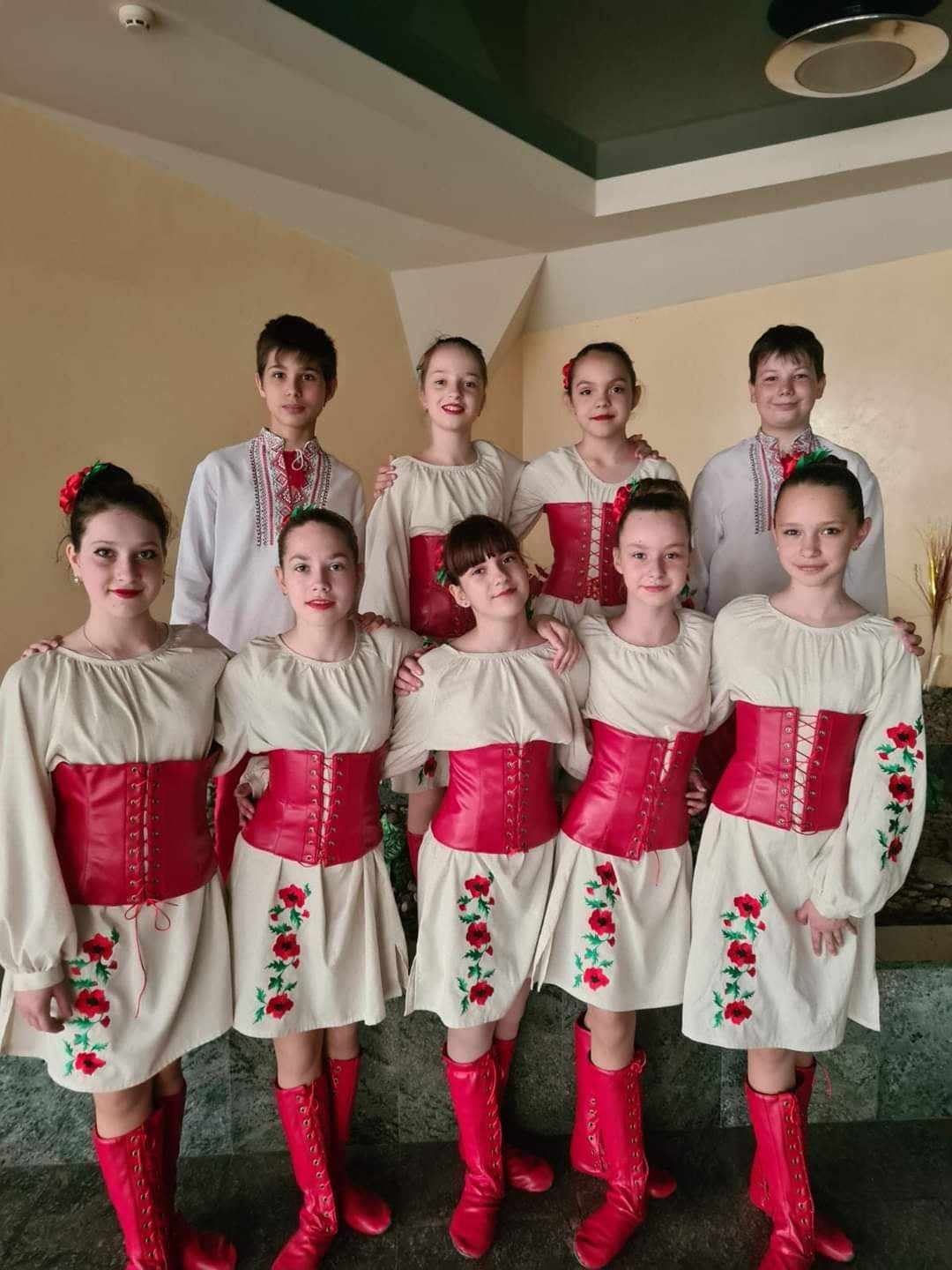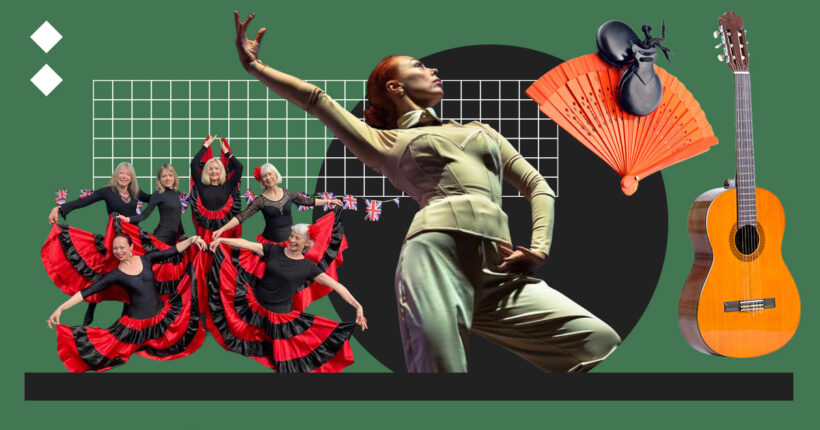
Dances that became life
Thirty-nine-year-old Anna Paniotova is a choreographer from Mariupol. There, she got acquainted with the art of dancing and became a professional. Paniotova says that her love for dancing came about thanks to her father.
"I started doing choreography around the age of 12. By choreographic standards, this is quite late. But still, dancing has become a part of my life. I am so grateful that my father found time to take me to choreography classes," says Paniotova.

Dancer Anna Paniotova on stage in Mariupol. Photo from the Paniotova's archive
Paniotova danced in various dance companies of Mariupol and had a busy concert life. She performed both folk and modern dances and then decided to make choreography her profession.
"When I realized that I wanted to seriously and professionally engage in choreography, I entered the Kharkiv Academy of Culture at the faculty of choreographic art," Paniotova recalls.
After receiving her diploma, she returned to Mariupol, where she became a choreographer and created the children's dance group Impulse. Children from four to 15 years old came to Paniotova to learn the basics of choreography.
"We mainly taught modern dances, but we also paid attention to folk dances," Paniotova recalls.
What is the problem?
"There are enough singers who can present a Ukrainian song, but there were almost no dancers"
When the full-scale invasion of Russia began, Paniotova found herself in the very center of hostilities. She finds it difficult to remember that period. "We lived under constant bombardment without water, electricity, gas, and communication. I remember one day when it snowed, and we collected it and carried it to the bath, and when it melted, we could at least wash the dishes and do other household chores. We didn't drink melted water, but I know cases when it was the only water for people," Paniotova shares.
She says that in Mariupol, she and her family collected firewood and cooked food on the fire. "Everything had to be done under constant shelling. A whole family died from a direct hit in the neighboring yard: mother, father, and daughter. They buried the dead right in the yards," says the Mariupol resident.
According to Paniotova, she no longer hoped to leave occupied Mariupol.
"Those who had a car had a chance to get out. I didn't have a car, so I understood I would have to be here until the end," says Paniotova.
And yet the woman managed to leave. Her brother first took her to the territory of Russia, and then she emigrated to Great Britain. "When the connection first appeared, my friend who lives in England started texting me. She told me about a sponsorship program to help Ukrainians get free accommodation."
So Paniotova ended up in the small town of Winchester, not far from London. She was given housing by a resident who lives in Japan. "I was fortunate with the owner of the apartment. She not only gave me a roof over my head but also took a sincere interest in my hobby — dancing."

Anna Paniotova during training in still peaceful Mariupol. Photo from the heroine's archive
In the town where Paniotova lives, a very powerful Ukrainian-English community was organized. The British are doing everything possible to ensure that Ukrainian refugees integrate into the community and take a sincere interest in Ukrainian culture.
"In the church, where the community gathers, many events are held. And somehow, there were enough singers who could present a Ukrainian song, but there were almost no dancers. Therefore, when I was offered to dance something folk, I was delighted," Paniotova shares.
What is the solution?
"It was so fun to dance to live music"
Having shown a Ukrainian folk dance at a community gathering in the church, Paniotova won the audience's hearts. She began to be invited to various charity concerts and performances. "I was invited to a concert organized in support of Ukrainian refugees. There, I danced a folk dance accompanied by an orchestra of folk instruments," says Paniotova.
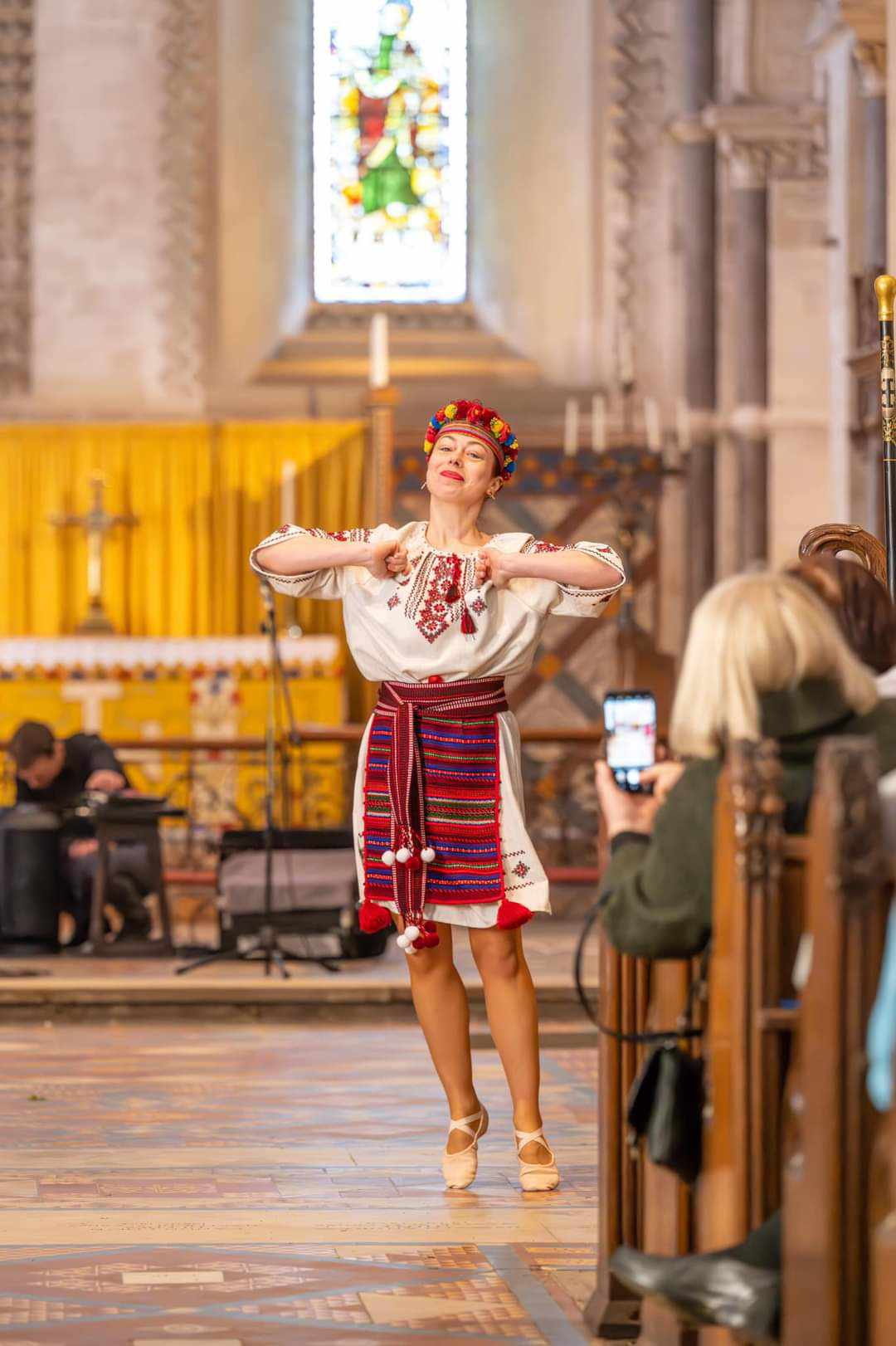
Anna Paniotova during a performance in the church. Photo from the heroine's archive
"It was so interesting to dance to live music," Paniotova recalls. "And it was very nice when English people came up to us after the concert, thanked us, and said they were very interested in seeing Ukrainian folk dance."
On the Independence Day of Ukraine, August 24, they organized a big event with a presentation of Ukraine, with Ukrainian songs and dances. "There was an exciting program when the presenter in English asked various questions about Ukraine, but warned that these were questions for the English. Because some things that seem familiar to Ukrainians are unknown to the English, this way, the British learned a lot about Ukraine."
How does it work?
Residents of Winchester and other English cities actively help Ukrainians. They not only provide housing for those who had to flee the war but also organize events that can be attended for a donation. The collected funds are sent to the needs of Ukrainians.
Paniotova says that she is proud that she is invited to such concerts. In this way, she can do her favorite thing and be involved in helping Ukraine and explain to foreigners the difference between Ukrainian and Russian cultures.
"After the performances, British people often turn to me with the question: 'Is this a Russian folk dance?' I have to explain the difference between Ukrainian folk dance and Russian," Paniotova continues. "There are many similar elements, but they differ in performance technique. I can explain each movement and tell how it differs in Ukrainian and Russian dance."
In the summer, the dancer also performs on the street. This is a way not only to please the audience but also to hone one's own skill. "When you don't work in your specialty for a long time, you lose your qualifications," says Paniotova. "That's why I take every opportunity to dance and keep myself in shape."
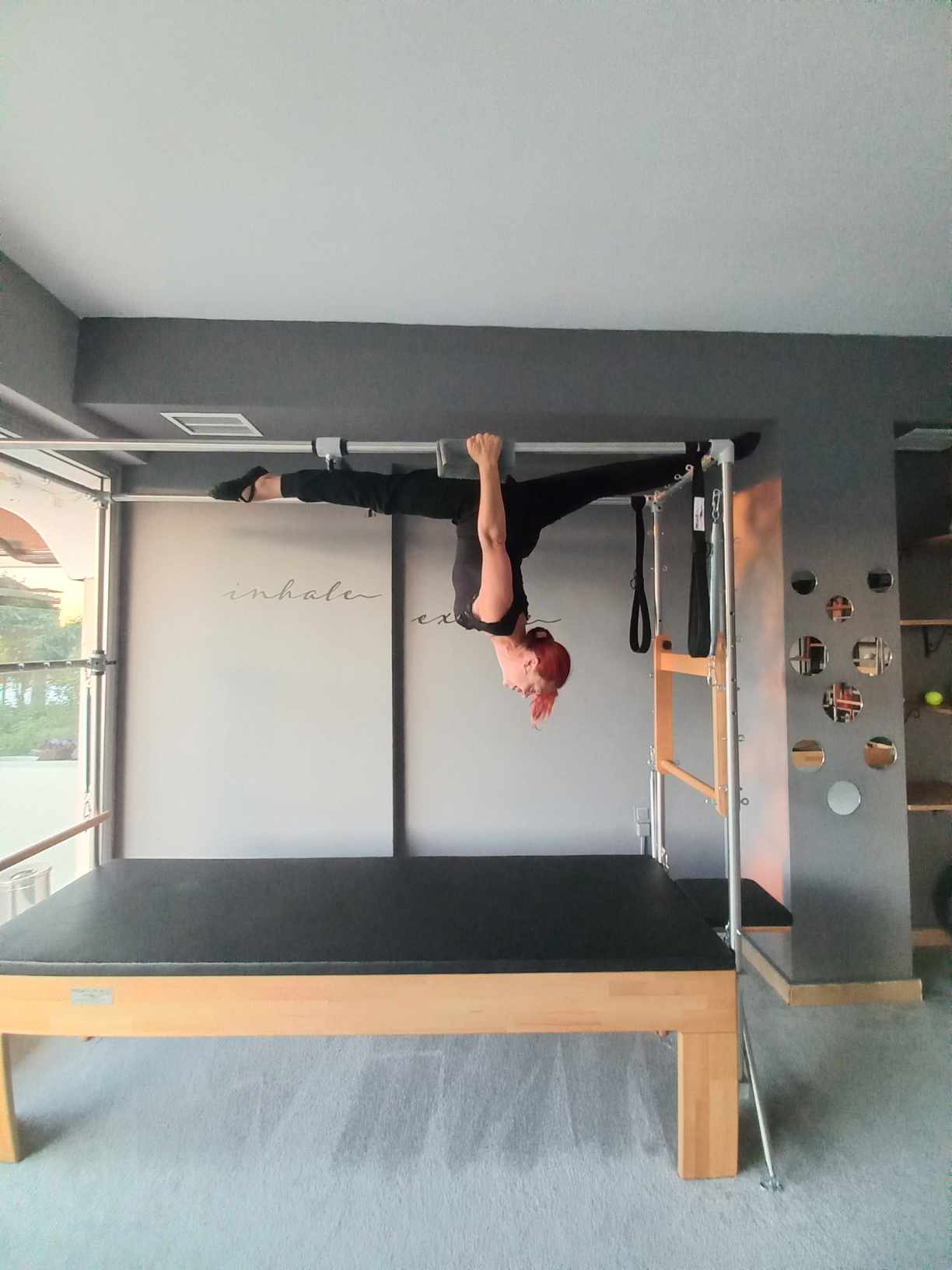
Anna Paniotova, during one of the training sessions in England. Photo from the heroine's archive
The dancer also conducts master classes for those who want to learn to dance. "Once, I was invited to the scout organization for a presentation on Ukrainian culture. I had to show the elements of the Ukrainian folk dance. It was so interactive when I demonstrated, and the children tried to repeat after me. It was amusing to watch them try to dance the hopak. Something worked out, something was wrong, someone fell, but everyone remembered it," Paniotova recalls.
The choreographer is also fond of Spanish dances. About a year ago, she organized a group of Spanish dance Flamenco in Winchester. Three English and three Ukrainian women gather to plunge into a fiery dance. So far, it doesn't bring income but brings pleasure instead. They conduct choreography lessons and perform in the church.
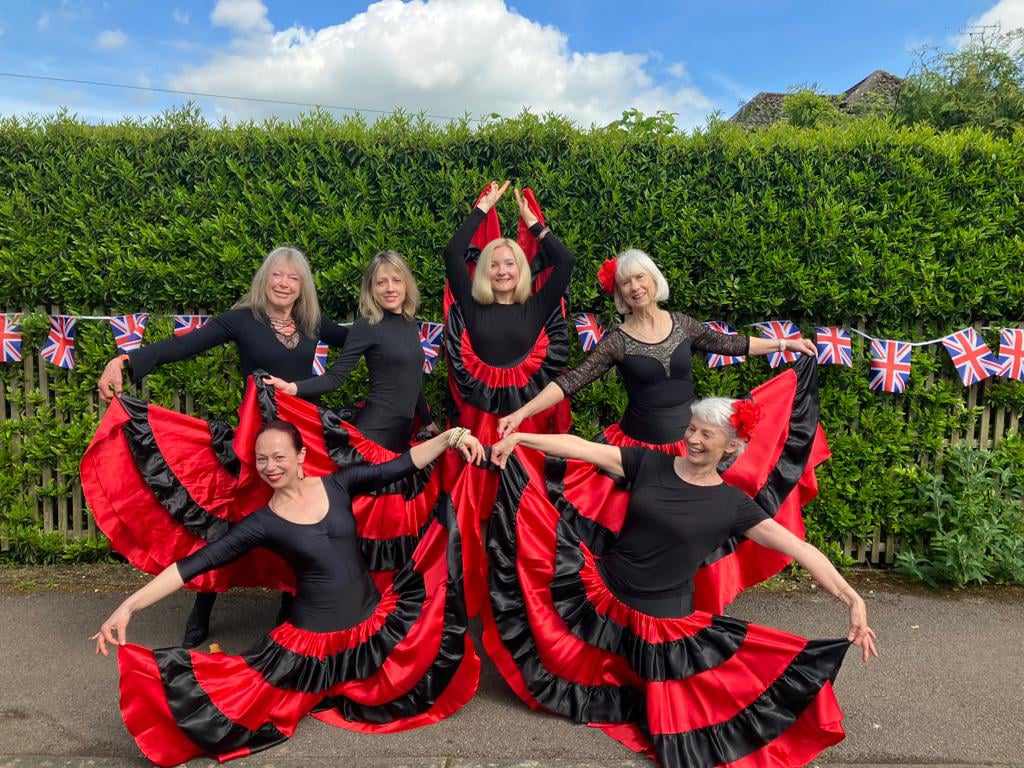
Flamenco ensemble in Winchester. Photo from the heroine's archive
"When I show videos of performances in the church, Ukrainians are very surprised: 'How is this possible?' But for the English, it is a normal practice when, after the concert, the service begins in the church," says Paniotova. "This church became a center of unity for Ukrainians and English. We gather there, hold discussion clubs, chat, and drink tea or coffee. And, of course, train in flamenco dancing."
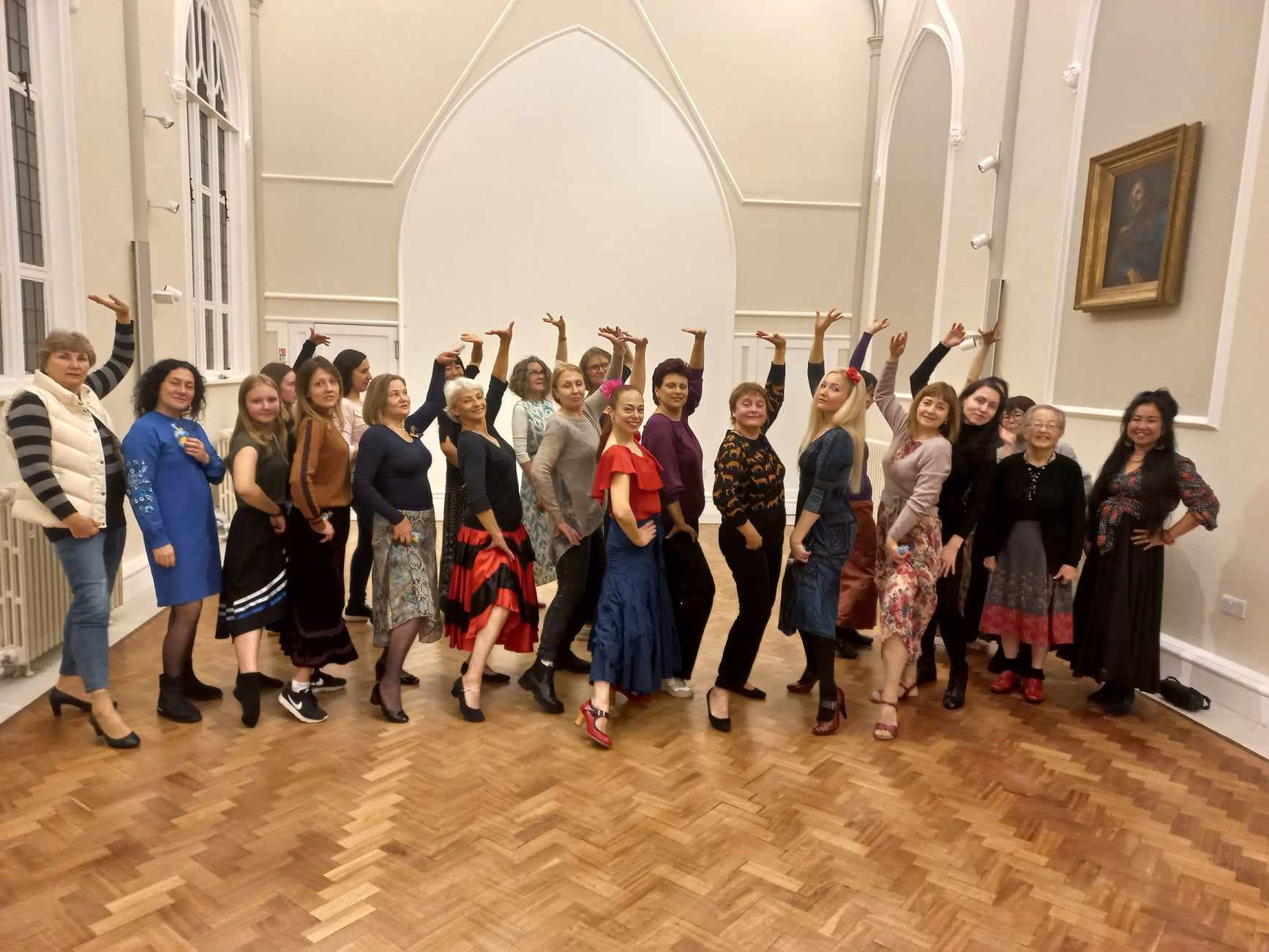
After Paniotova's flamenco master class. Photo from the heroine's archive
The Flamenco ensemble participates in charity concerts and organizes master classes, which many willing people attend. It's also therapeutic and an opportunity to find friends. In particular, two Mariupol residents joined the team.
"I am very grateful that I have the opportunity to attend dance classes in England," admits Maryna Dablo, a member of the ensemble from Mariupol. "It allows me to distract myself from the events that happened in my life during the war. Paniotova does everything possible to ensure we attend classes with pleasure and participate in charity concerts. We are lucky to be students of this wonderful teacher. Her professionalism and love for her work impresses, inspires, and fascinates."

Flamenco ensemble performing in the church. Photo from the heroine's archive
"Here, I met friends among British and Ukrainians. I feel confident and free in a warm and friendly atmosphere. We value the time we spend together at classes and concerts," shares Yuliia Petrushyna from Mariupol.
Winchester resident Julia Bray says: "Flamenco classes are one of the most important classes in my schedule. Paniotova is not only an excellent dancer but also an excellent teacher. We always go to her classes with pleasure. Flamenco develops both mind and body and challenges coordination, balance, memory, and rhythm. Paniotova is a patient and passionate teacher. Thanks to her faith and encouragement, we participate in local concerts."
Paniotova wants to develop abroad but misses the children from her dance team in Mariupol. "During eight years of work, a large database of costumes has accumulated, and the children got used to the teacher. Unfortunately, now the team members are scattered all over the world. We keep in touch, try to follow each other on social media, and believe that one day we can meet and dance together again".

"Wars start with communications, but they also end with them": a Ukrainian communications specialist helps domestic NGOs speak to the world from abroad

Yana Koretska: "I feel my mission is to tell Irish people about Ukrainian culture"



